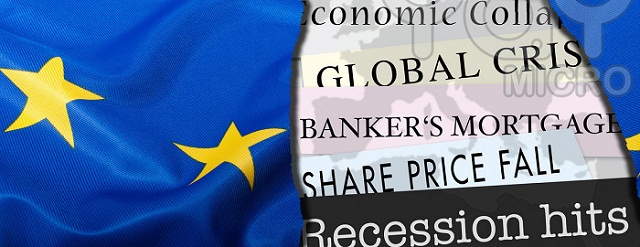Now that Europe seems to have shelved the anguish experienced a few months ago, when the Euro found itself at the brink of utter collapse, a greater challenge might be looming ahead. Growth is faltering at such a quick pace that a deep recession might be in the pipeline. Should the US and Asia follow this downward trend, the world economy might be faced with another Ice Age.
Would Europe survive in the face of such a proving test? There is ample room to doubt it.
Unwinding the current drive for fiscal virtue would take too long to be effective. In the aftermath of the 2009 crisis, both Germany and France dismissed any combined strategy to provide strong stimuli to the ailing world economy. Instead they pointed at financial de-regulation as the scapegoat to blame for all past sins.
Time has proved that while supervisory failure played an important role in triggering the crisis, the main culprits were the extensive and deep-rooted macro-economic imbalances carelessly fuelled by a cheap money stance. Nourishing immoderately an ever growing appetite for living beyond the means led to a painful crash.
Should the recession threaten again to disrupt the economy, there is little chance Europe might be able to endorse a common budgetary drive to save the worst from happening. The task would likely be transferred to the European Central Bank. But can governor Draghi deliver enough stamina through further monetary easing?
It doesn’t seem there is much room left to drive rates down. Only a massive QE plan, similar to the ones put in place by the US Federal Reserve, could save the day. But one doubts that hawks at Frankfort will ever accept such a plan be given a green light.
Just look at the way the ECB behaves right now. It openly admits that faulty monetary transmission fully warrants buying sovereigns in the secondary markets. Yet it fails to perform this task on its own merit, imposing as a condition that potential beneficiaries should ask for a formal rescue. This striking contradiction shows you cannot expect the ECB conducting a fully independent line.
At the end of the day it won’t move unless it is allowed to do so by Berlin. That leaves little hope of addressing a potential recession with the full authority and power a central bank is supposed to have. Let’s cross fingers for that recession never to materialise for, in that event, Europe might probably collapse before effective remedies are put to work.





